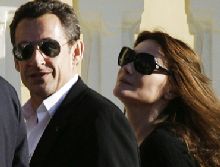2 Dec 2008 | Uncategorized
Al Dostour editor Ibrahim Eissa has won the Gerbran Tueni award, a prize given by the World Association of Newspapers that honours an editor or publisher in the Arab region.
Eissa spent much of the last year locked in legal battles after he was given a custodial sentence when his newspaper reported on rumours of Egyptian president Mubarak’s ill health. He was pardoned in October.
20 Nov 2008 | Uncategorized
 Yesterday I had the privilege of taking part in a discussion at the Foreign Press Association with Egyptian writer Ali Salem. He was in London to accept the Civil Courage Prize, an award set up by US businessman (and co-founder of the Paris Review) John Train to honour ‘steadfast resistance to evil at great personal risk’.
Yesterday I had the privilege of taking part in a discussion at the Foreign Press Association with Egyptian writer Ali Salem. He was in London to accept the Civil Courage Prize, an award set up by US businessman (and co-founder of the Paris Review) John Train to honour ‘steadfast resistance to evil at great personal risk’.
Salem is best known for his book Journey to Israel (you can read extracts here). After the Oslo Peace Accords, Salem decided he wanted to find out about Israel, and set off in his car for a three-week trip round Egypt’s neighbour. He wrote a book about the experience, and, while the book sold well in Egypt, he found himself criticised and ostracised for ‘normalisation of the Zionist entity’.
Ali Salem is a passionate believer in the exchange of ideas and culture, an outspoken critic of the narrow thinking that has blighted his country (and all countries). ‘Thinking is a risky business,’ he told me yesterday. ‘And sometimes it is easier to shoot someone than to debate.’
But Salem insists we must debate if we are to progress. As he puts it: ‘Let ideas do combat with each other, theory against theory, for the benefit of the nation.’
7 Oct 2008 | Middle East and North Africa, News and features
Egyptian president Hosni Mubarak has said that editor Ibrahim Eissa will not have to serve a two-month jail sentence.
Read more here
26 Mar 2008 | News and features
 As President Nicolas Sarkozy visits Britain, Natasha Lehrer looks at the changing relationship between France’s political elite and the media
As President Nicolas Sarkozy visits Britain, Natasha Lehrer looks at the changing relationship between France’s political elite and the media
In a radical break with French tradition, the amorous antics of the country’s President have lately become fair game for the French press. Famously, de Gaulle was the only post-war president to have remained faithful to his wife. President Mitterrand’s mistress and daughter lived in elegant anonymity for 20 years in a stunning rive gauche apartment, with rent was paid by the state, untroubled by any press intrusion into the couple’s private life whatsoever. But since Sarkozy came to power the hallowed French tradition of respect for the private lives of the famous and powerful appears to have begun to change.
As recently as last May, the old pieties regarding privacy were still being spouted when it was ‘revealed’ that the presidential candidate, Segolène Royal, had officially split up with her long-time partner, Socialist Party (PS) leader François Hollande. That there was trouble in paradise between the first couple of the PS was one of the worst kept secrets in Paris, but sticking to the old-fashioned Mitterand principle, no mention of it had ever appeared in the media, even in the outlets who favoured a win by Sarkozy. Worse, when it did come out, in a press release from Royal herself, there was a palpable sense of outrage amongst the Parisian chattering classes that the cardinal rule that the hoi polloi has no business knowing anything of the intimate lives of those in the public eye had been broken.
(more…)


